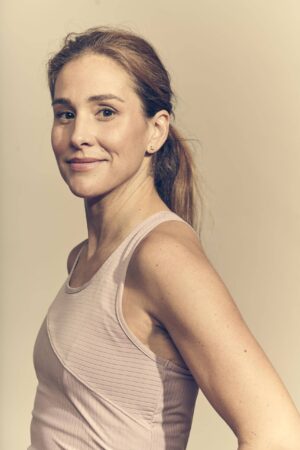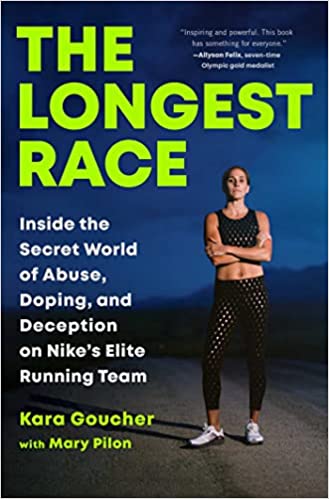An Elite Athelete turns Whistleblower
When elite runner Kara Goucher wanted to write a memoir about her experiences with her coach, Alberto Salazar, she met with a number of potential co-writers. At the time, in 2019, the media was filled with stories about an anti-doping investigation involving Salazar and the elite Nike Oregon Project, where Goucher had been a star. The investigation resulted in Salazar being banned from the sport for life. But Goucher argued that the rest of the story — about the culture of abuse and injustice her coach had created, her allegations of sexual misconduct against him, humiliating weigh-ins that played into the kind of disordered eating so common among young girls in sports and the arts — had not yet been fully told.
Still, she experienced disinterst from several potential co-writers. One told her, “Your story’s already been told. I don’t think there’s much more to it.”
Goucher ignored the nay-sayers and ended up working with former New York Times sports reporter Mary Pilon to create The Longest Race: Inside the Secret World of Abuse, Doping, and Deception on Nike’s Elite Running Team, published in March. While it sometimes goes a bit deep into the weeds about the details of high-level running for non-runners, it’s still a brave whistleblower’s expose.
Goucher was a gifted runner since she was a kid and was offered a Nike sponsorship when she graduated from college. In 2004 she was invited to join a lavishly-funded team called the “Nike Oregon Project,” founded by Nike Vice-President Thomas Clarke who thought U.S. long-distance runners had been under-performing for years. Alberto Salazar, who had won three consecutive New York City Marathons and the Boston Marathon in the early ’80s, and broken many distance records after that, was picked by Nike to be its coach.
Goucher became one of the “Nike Oregon Project’s” stars. She won world championships, came third in the New York and Boston Marathons and competed at the Olympics. But was also an All-American poster child for Nike. The issue, Goucher makes cle ar in her memoir, wasn’t only Salazar. Nike, with its predominately male executive team (she calls it a “boy’s club”), knew about the allegations against their coach and chose to ignore them. Furthermore, when Goucher had a child, Nike used her to reinforce its efforts to sell itself as a progressive brand that cared about women. (While suspending Goucher’s pay when she was pregnant because of her “medical condition.”) When she returned to training less than two weeks after giving birth, she writes, “No one checked in on how I was doing—not Alberto, Darren, assistant coaches, or physical therapists. There was no talk of creating a plan for me that put my health and safety first. Nike was making money by tailoring its marketing to motherhood and femininity, while up close, the story was very different. It was dangerous, and looking back, it makes my heart sick.”
ar in her memoir, wasn’t only Salazar. Nike, with its predominately male executive team (she calls it a “boy’s club”), knew about the allegations against their coach and chose to ignore them. Furthermore, when Goucher had a child, Nike used her to reinforce its efforts to sell itself as a progressive brand that cared about women. (While suspending Goucher’s pay when she was pregnant because of her “medical condition.”) When she returned to training less than two weeks after giving birth, she writes, “No one checked in on how I was doing—not Alberto, Darren, assistant coaches, or physical therapists. There was no talk of creating a plan for me that put my health and safety first. Nike was making money by tailoring its marketing to motherhood and femininity, while up close, the story was very different. It was dangerous, and looking back, it makes my heart sick.”
Racism also plays a role in her story. She details how Nike valued her “relatability” (translation: a mom who was pretty, perky, and white) while under-valuing female runners of colour.
But the most sickening details involve Salazar, his habit of sexualizing female runners, “accidentally” touching breasts, the leg massages that ended with his finger in Goucher’s vagina. Why did it happen? As we know, abusers are skilled at making victims feel helpless, frightened that they will lose what they have — a spot on an elite running team, in the cast of a major motion picture, a member of a top theatre company — if they go public. As Goucher explained to The New York Times, “athletes are brilliant compartmentalizers. You push away pain and instead focus on how much you want it. You push away how much you miss your family because you are always so focused on your dream. When abuse happens, athletes are so good at pushing it away.”
In a refrain we’re familiar with, from issues of sexual misconduct to racism, Goucher writes: “If I’ve learned anything, it’s that change starts when good people refuse to stay quiet.”
